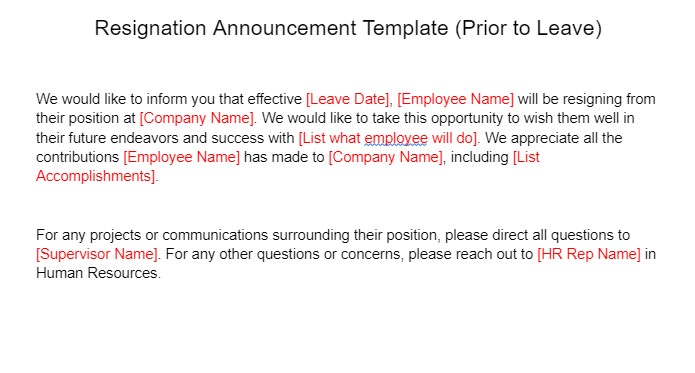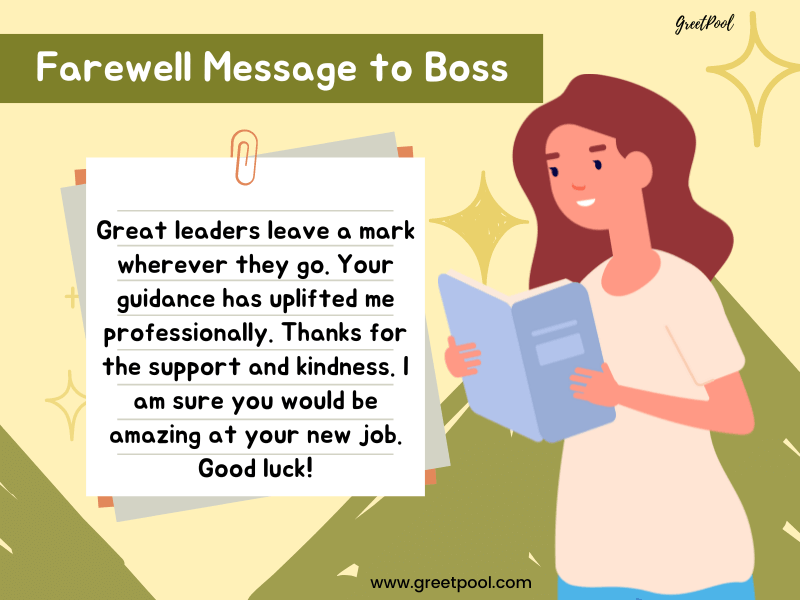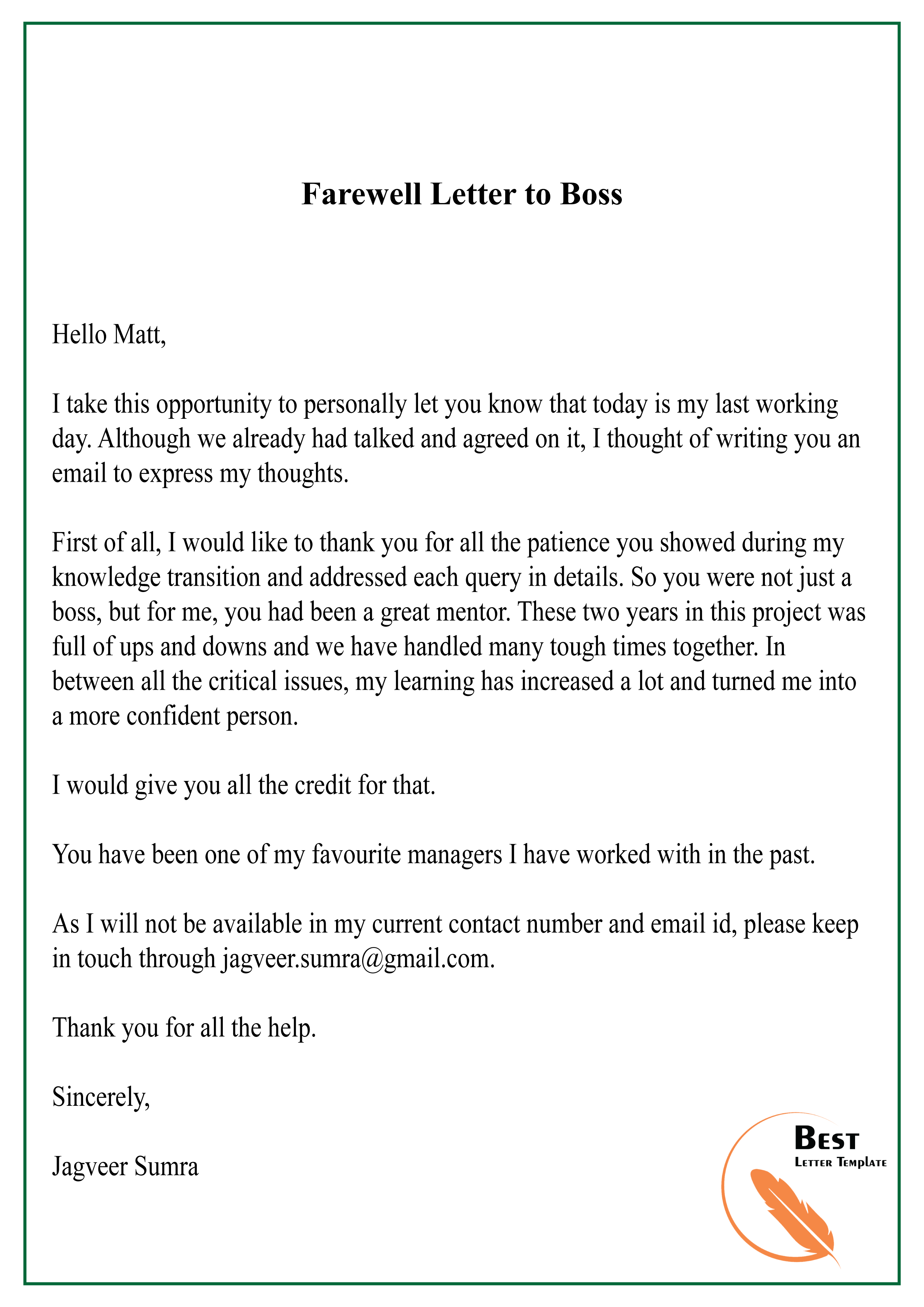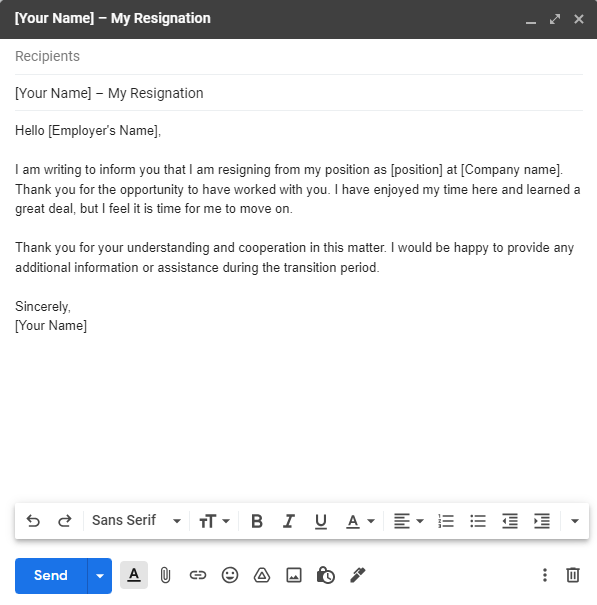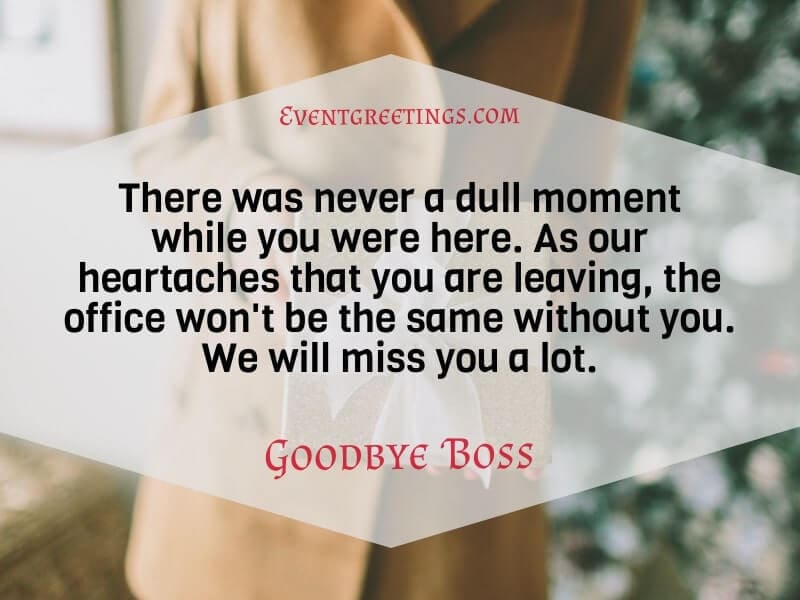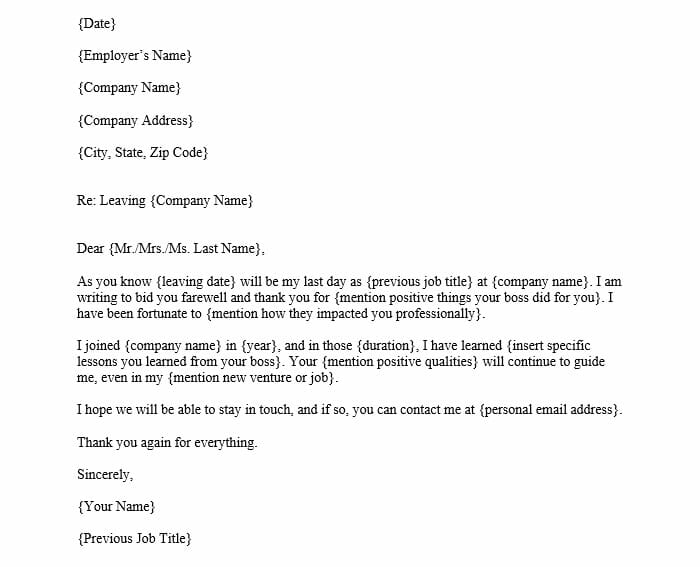How To Tell Manager That You Are Leaving

Navigating the professional landscape often involves making significant career transitions. One of the most delicate parts of this process is informing your current manager of your departure. Proper communication can ensure a smooth handover and maintain positive professional relationships.
This transition, while exciting for the individual, requires careful planning and execution. A well-executed resignation helps minimize disruption and ensures a professional exit.
Preparing for the Conversation
Before scheduling the meeting, it's crucial to have a clear understanding of your next steps. Solidify your new job offer and start date before informing your current employer. This ensures you have a concrete plan and avoids potential vulnerabilities.
Draft your resignation letter. A concise and professional letter serves as a formal record of your departure. Including your last day of employment and expressing gratitude for the opportunities provided are generally recommended.
The Conversation: Key Elements
Schedule a face-to-face meeting with your manager. This demonstrates respect and allows for a more personal conversation, rather than relying solely on email. Request a private meeting in a location where you can speak candidly.
During the meeting, be direct and professional. Express your gratitude for the opportunities and experience you've gained. Avoid negativity or complaining about the company or colleagues.
Inform your manager of your decision. Clearly state your intention to resign and provide your intended last day of employment. Keep your explanation brief and focused on your career growth or new opportunity.
Giving Notice: Timing and Considerations
The standard notice period is typically two weeks. However, review your employment contract or company policy for specific requirements. Providing ample notice allows the company time to find a replacement and ensures a smoother transition.
Be prepared to discuss your workload and transition plan. Offer to assist in training your replacement or documenting your processes. Demonstrating willingness to help ensures a seamless handover.
During and After the Conversation
Be prepared for your manager's reaction. Some managers may be supportive, while others may be disappointed or even angry. Maintain your composure and respond professionally, regardless of their reaction.
After the conversation, follow up with your formal resignation letter. This provides a written record of your resignation and confirms your last day of employment. Keep a copy of the letter for your records.
"Leaving a job is a significant career event. Handling it with professionalism and respect can help maintain positive relationships and open doors for future opportunities," says Dr. Anya Sharma, career counselor at the Professional Development Institute.
Complete any necessary exit paperwork. Ensure you understand the company's policies regarding final paychecks, benefits, and return of company property. Gather any documents you may need, such as performance reviews or training certificates.
Maintaining Professionalism
Continue to perform your duties to the best of your ability during your remaining time. Avoid becoming disengaged or neglecting your responsibilities. Maintaining a strong work ethic reflects positively on your character and reputation.
Be mindful of your online presence. Avoid posting negative comments about your employer on social media. Professionalism extends beyond the workplace and can impact your future career prospects.
Offer assistance during the transition period. Support your colleagues and contribute to a smooth handover. This demonstrates your commitment to the team and strengthens your professional relationships.
Impact and Legacy
The way you handle your resignation can have a lasting impact on your professional network. Leaving on good terms preserves your reputation and maintains positive relationships with former colleagues. Building strong professional relationships is crucial for career advancement.
By following these steps, employees can navigate the resignation process with confidence. This ensures a professional exit and maintains positive relationships with former colleagues and employers.
:max_bytes(150000):strip_icc()/2060865a-a00dd037c25547df8a83c13bb57cd695.jpg)

